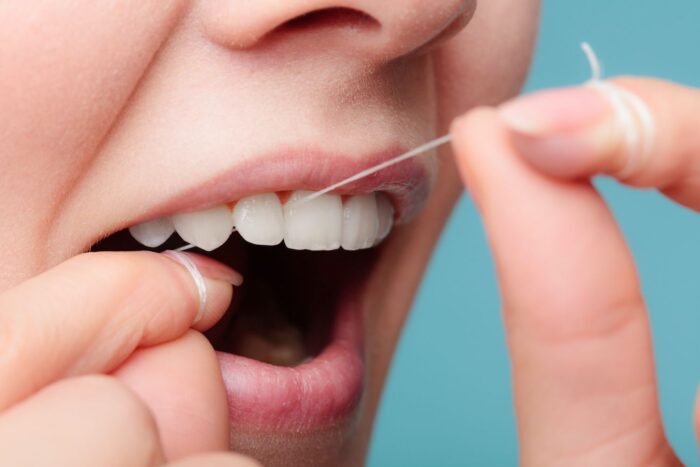We all know brushing our teeth is essential. But, there’s the often-overlooked hero in the battle for oral health: dental floss. This simple tool can make a world of difference in your oral hygiene.
Dental floss may seem like a small player in your oral hygiene routine, but it’s a vital one. Regular flossing can prevent many dental concerns and even benefit your overall health.

Why Brushing Alone Isn’t Enough
Brushing is fantastic for cleaning the surfaces of your teeth. However, it can’t reach the tight spaces between them. These spaces are a breeding ground for harmful bacteria. This can lead to cavities and gum disease.
The Power of Flossing: What It Does for Your Oral Health
Dental floss is excellent at removing plaque buildup and food particles stuck between your teeth. Plaque is a sticky film of bacteria that can harden into tartar. When you remove plaque, it helps prevent cavities. When you don’t remove plaque, it produces acids that erode tooth enamel, leading to those pesky cavities.
Flossing is your ticket to maintaining healthy gums. When you floss regularly, you help prevent gum disease, which can lead to more serious issues like tooth loss.
How to Floss Properly
The proper flossing routine is crucial. If you don’t know how to floss, you can inadvertently damage your gums.
To begin, dental floss comes in various types, like waxed and unwaxed, flavored or unflavored, and even floss picks. You should choose the type that suits you best to encourage consistent flossing.
Next, you need to use the right amount of floss. Cut a piece of floss about 18 inches long. This may seem like a lot. But, you need enough to use a clean section between each tooth. Using enough floss can help prevent the spread of bacteria.
When flossing, wrap the floss around your fingers. Also, leave about an inch or two of floss between them. Gently slide the floss between your teeth, curving it around each tooth in a “C” shape. Be gentle to avoid damaging your gums.
It’s easy to focus on the front teeth, but the back ones need love too. Make sure you reach all the way to your molars.
Flossing Tips for Everyone
If you have braces, flossing can be a bit tricky. But don’t skip it! Use a floss threader or specialized floss designed for braces to get between those wires and brackets.
For sensitive gums, be extra gentle while flossing. You might also consider using a soft dental tape, which is wider and gentler on the gums.
The Benefits Beyond Your Smile
Flossing isn’t just about maintaining a dazzling smile; it can also impact your overall health.
Some studies suggest a link between gum disease and heart disease. By keeping your gums healthy through flossing, you may be doing your heart a favor. You can prevent the spread of damaging plaque and bacteria.
Flossing helps eliminate food particles that can cause bad breath. So, if you’re looking for minty-fresh breath, don’t forget to floss!
